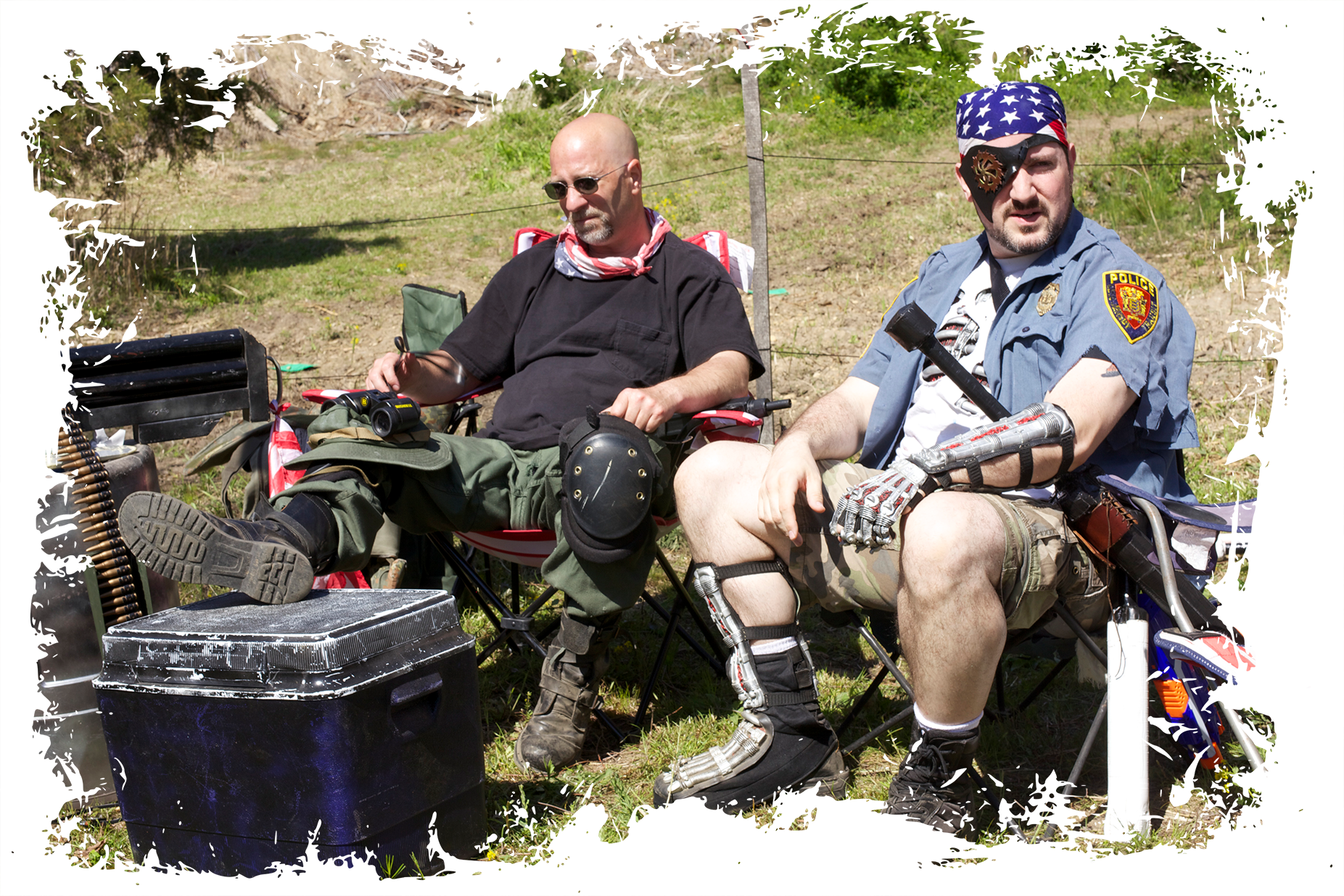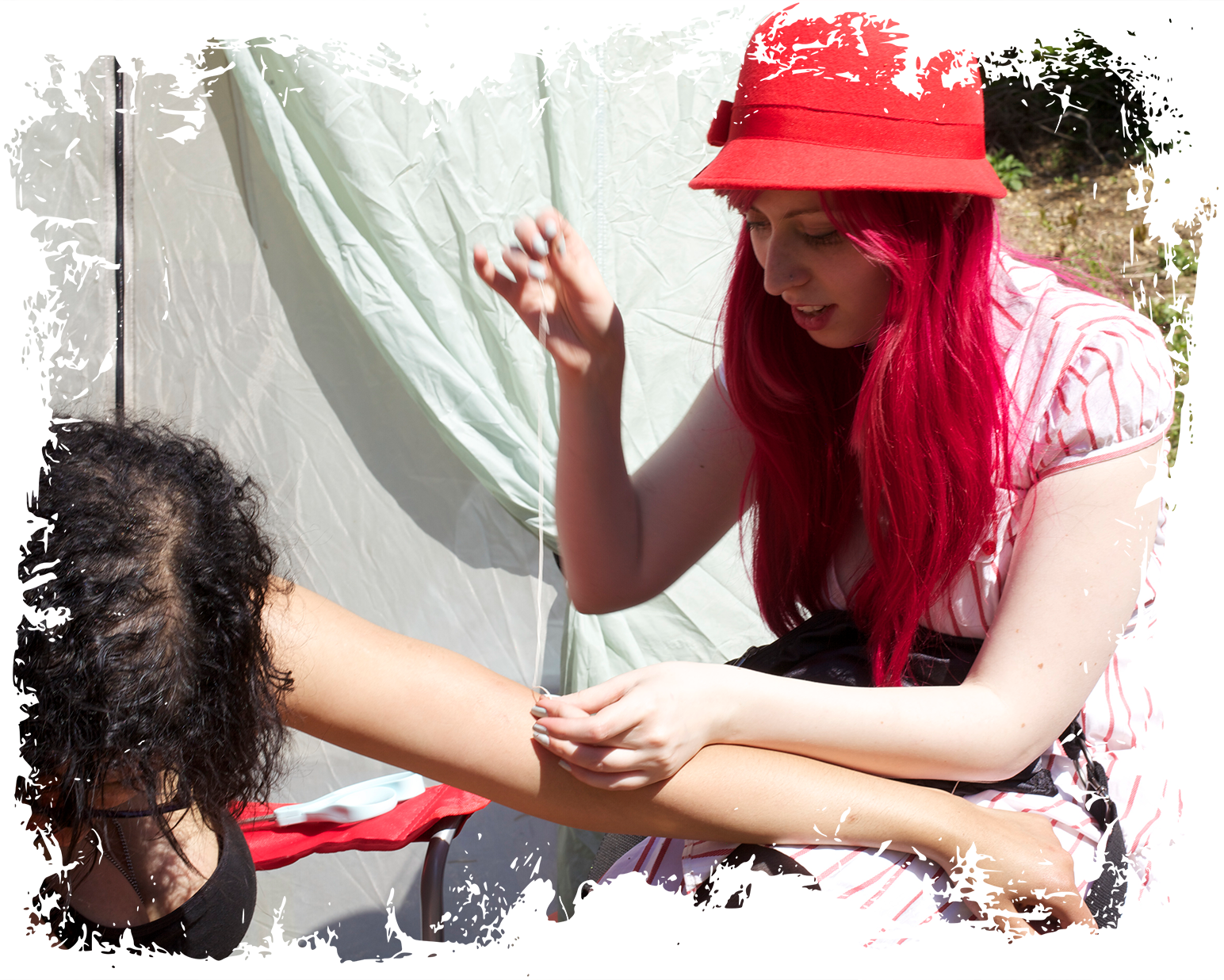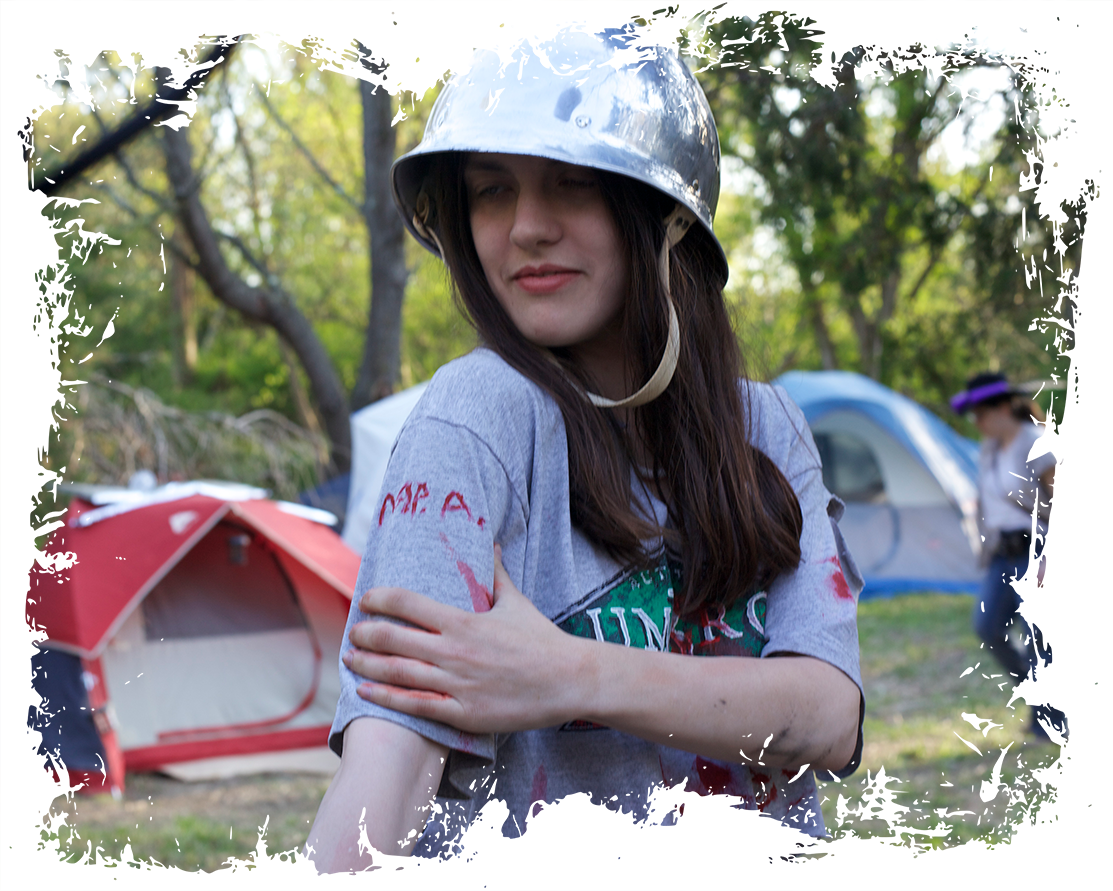Diverse Characters in the Apocolypse
In DOOMFELL you can explore a dynamic range of diverse characters. Most starting characters will have ten to fifteen skills. With hundreds of skills to choose from, every character is unique, and the possible characters are only limited by your imagination. Character creation is a simple step by step process that begins with creating a past, personality, and purposes for your character.
You can also choose an Optimized Character with preselected skills. These characters have been constructed with everything a new player needs to enjoy their first event. After the event, if you want to change some skills you are allowed to do so, but most people find the starting characters to be the best possible design for the character type.

Statistics
Every character is represented by five statistics:
1) Status
Status is the numeric value used to build a character that represents the character’s advancement in the world. All characters start with a stated amount, usually between 4500 and 5500. Additional status is earned by playing the character, acting as a cast member, or performing acts of service to the club and member community.
2) Rank
Rank denotes the power level of a character and is determined by the total amount of status on a character. Rank 1 characters are just starting out. Rank 5 characters have reached the pinnacle of their power. Rank also identifies the level of a skill and defines its cost in stamina or materials. A character also has a rank based on the amount of accumulated status. Characters cannot use skills that are ranked higher than their current rank. Most player characters start at Rank 2.
3) Health
Health represents how much damage a character can suffer and remain active. Damage from weapons, magic, or other sources, will reduce Health. When a character’s Health reaches zero the character becomes “impaired” and can no longer act normally. Lost Health is restored by healing.
4) Stamina
Stamina represents a character’s endurance. Using stamina-based skills (castings, feats, and responses) consumes an amount of Stamina. When a character’s Stamina reaches zero the character becomes “exhausted” and can no longer act normally. Lost Stamina is restored by Resting. Characters can only rest at a resting location which is their base of operations or place imbued with mystic energy.
5) Resources
Resources represents the money and materials a character has immediately available to them at the start of an event. During Check-In a player chooses bottlecaps or materials cards (needed to use material-based skills such as compounds, fashioning, methods, and runes). At Check-Out a player turns in all silver, materials cards, and treasure for status.

Skills
Skills provide expertise to characters. Most new characters start with at least 10-12 skills. As your character advances you will learn more skills. There are hundreds of skills available to create dynamic characters. They are divided into categories based on how they are used during play.
Counts
When skills require a count the player must make an audible, spoken count while roleplaying the activity. Each count is one second long and is out-of-character speech. Counts may not be rushed. The spoken count is a representation of task completion, elevation, or other in-game factor that needs to be announced.
A climbing count allows a character with the climb III skill to ascend in-game vertical surfaces at a fast movement and would be performed as “Climbing up 5, climbing up 10, climbing up 15” where the number stated is the height.
Fatal finish is a skill used to kill an enemy character and would be counted as fatal finish 1, fatal finish 2, fatal finish 3, fatal finish 4, fatal finish 5.”
Knowledge Skills
Knowledge skills represent an accumulation of learning or the development of a proficiency. Players can use knowledge skills without restriction whenever appropriate during play.
Information-based knowledges allow characters to read out-of-play knowledge notes and/or complete tasks marked with the skill name. Examples: biology, history, mechanics, rumors, occult, theology
Activity-based knowledges allow you to perform in-game actions by roleplaying the activity with body movement for a specified length of time represented by a count. Examples: climb I, first aid, leaping, splint, surgery, swim I
Stamina-Based Skills
When characters use stamina-based skills their stamina is reduced by the stamina cost of the skill. Stamina-based skills are single use skills and must be “recovered” before the skill can be used again. Skills are recovered at the rate of 1 minute per rank when the character is not fighting or doing strenuous activity. Stamina-based skills cannot be used if a character does not have sufficient available Stamina.
Ballads
Ballads create supportive effects through singing. They are an exciting way to entertain between adventures and songs drifting over the battlefield create powerful theatrics. Beginning a Ballad costs stamina equal to the rank for the ballad.
Castings
Castings are spells, prayers, and powers that use verbal invocations and complex finger motions to coalesce energy into a character’s hand. The casting can be thrown at a target to produce an effect. Successfully using a casting cost stamina equal to the rank of the casting. castings are expended if the casting successfully effects the target or if countered using a response or other skill.
Feats
Feats are used to enhance melee and ranged weapon-based attacks. Successfully using a feat costs stamina equal to the rank of the feat. Feats are expended if the feat successfully effects the target or if countered using a response or other skill.
Responses
Responses are used to counter a specific-effects or play situation. Announcing a response costs stamina equal to the rank of the response. Responses are always expended when announced.
Material-Based Skills
Materials-Based skills are powered by mana-imbued materials that are procured during play. All materials have a quality that is represented by a number ranging from 1 to 5. The quality of the material used to power a mana-based skill must be equal to or greater than the required number. Materials of a lower quality cannot be combined to achieve the required quality. High quality can always be used to satisfy lower quality requirements. Common materials are catalysts for compounds, ink for runes and glyphs, supplies for items and traps, and powder for methods.
Compounds
Compounds are mixtures of chemicals that create many diverse effects. They are created by following a recipe that contains a list of ingredients and describes the mixing process. Compounds require time to mix (Rank 1 one minute and Rank 2 two minutes) and consume mana-imbued materials equal to the rank of the compound.
Glyphs
A glyph is a complex geometric shape composed of a series of lines drawn on a mat. The mat is placed on a flat, non-moving surface and empowered by a character through the use of high-quality materials. Empowered glyphs replenish the expenditure of stamina and remove the recovery requirement by a character using the glyph. Healing glyphs are very important in some settings.
Methods
Methods are stylized performances that produce effects on a recipient. In play setting they are referred to as rituals and/or procedure. Performing a method requires the performers to speak and use props in an entertaining manner for a specified amount of time. Methods require time to perform (Rank 1 three minutes and Rank 2 five minutes) and consume mana-imbued materials equal to the rank of the method.
Runes
Runes are unique pictorial designs composed of five lines that are drawn on a character’s lower arm with special materials. They provide momentary defense for a character by preventing stated effects.
Traps
Traps are harmful mechanical devices or magical constructs set in place and left to be triggered by the unwary. Physical traps are built using levers, gears, turbines, springs, nozzles, blades, and so forth. Magical constructs are built using crystals, rods, filaments, imbued stones, holy relics, and so forth.
